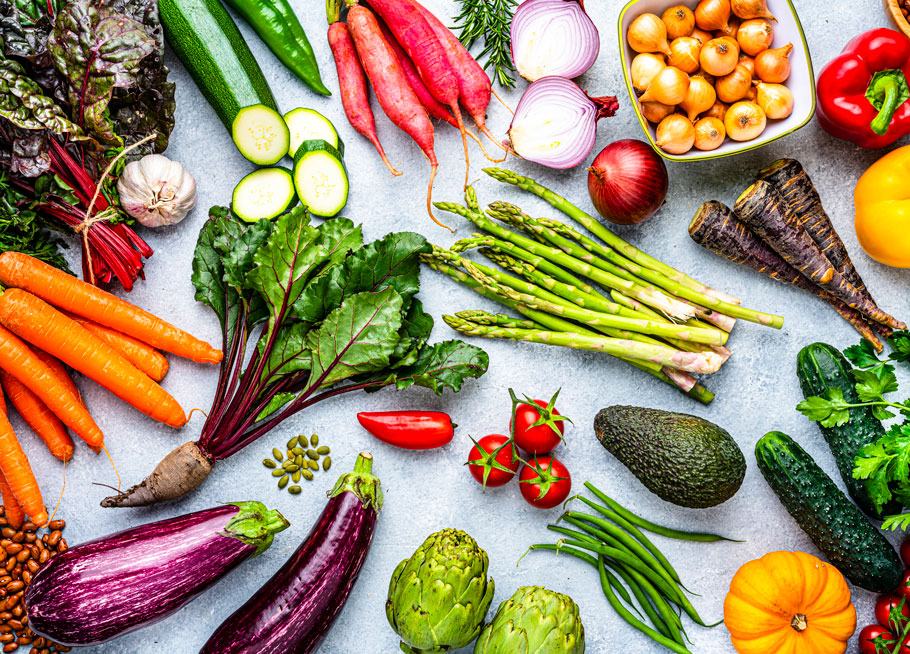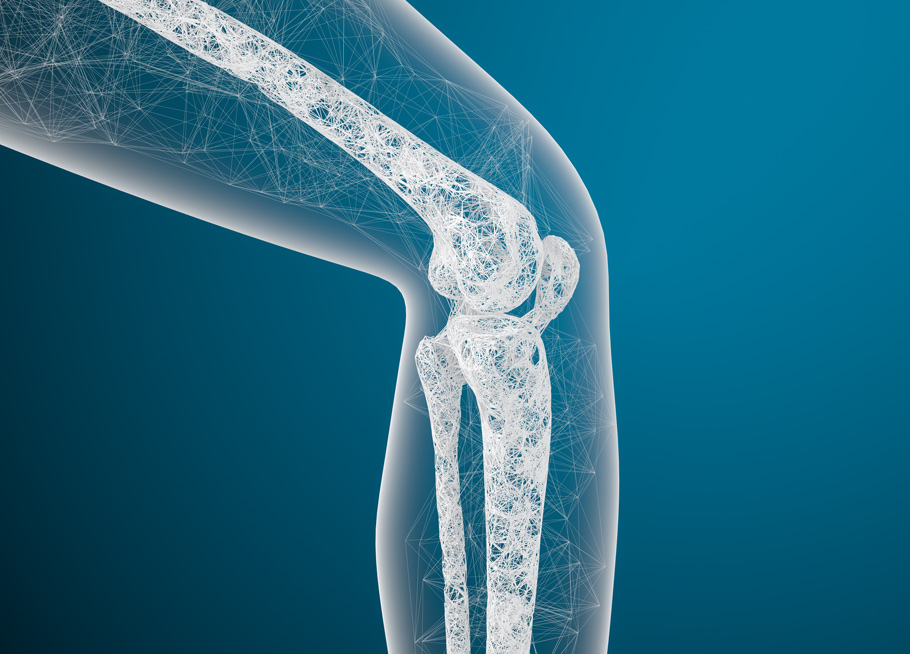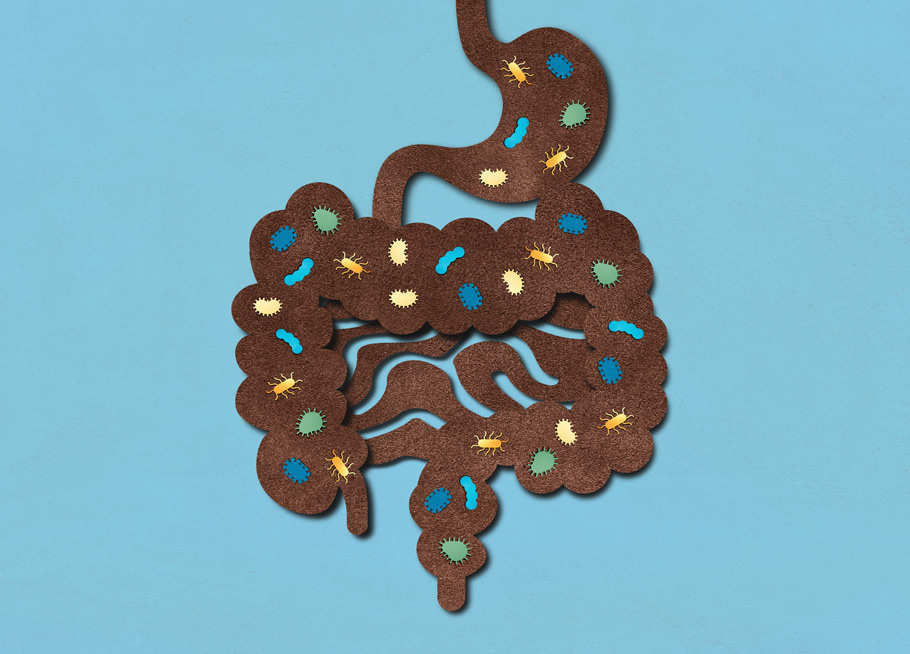
The foods you consume have a great impact on your health. This is why we hear lots of nutrition advice in the media, from doctors, health gurus, and even from our friends and family – but this advice can often be conflicting, and some of it is even given without evidence to back it up. So what is the correct advice when it comes to food and joint pain? Are there foods that you should be consuming or avoiding?
Dr Naveen Bhadauria, Consultant Rheumatologist explains: “Those with joint conditions – especially those with inflammatory joint conditions such as rheumatoid or psoriatic arthritis – may experience periods of pain, swelling and other symptoms in their joints, which can be brought on by diet. There are certain foods which can trigger an inflammatory response in the body, causing the immune system to mistakenly attack the joints and setting off these symptoms. There are also joint conditions that are directly related to diet, such as gout.”
From a wider perspective, your diet has more of an impact on your joint health than you might think, from eating too much food and putting on weight in a way that may put pressure on your joints, to consuming a diet that causes poor gut health leading to chronic inflammation. Below, we explore these links between food and joint pain, and which foods may help or hinder joint conditions.
The Professional Advice On Diet And Joint Pain
For most patients, a consultant rheumatologist will advise that maintaining a healthy, balanced diet is key for managing joint pain.
What is a healthy, balanced diet? This is a diet that:
- Consists of foods from all five food groups: fruits and vegetables; carbohydrates; proteins; dairy; and fats and oils.
- Moderates the amount of food from each food group, as well as the amount of food consumed overall.
Following this type of diet ensures that your body and its joints are getting the vitamins, minerals and other nutrients that are needed for it to thrive. There are some cases where a certain food or entire food group cannot be consumed by an individual, such as those who are lactose intolerant, in which case, their diet will be focused on obtaining nutrients from the remaining food groups or consuming supplements where necessary.
Food And Joint Pain: Should I Cut Out Foods To Help With Joint Pain?
Besides patients with an allergy or intolerance, we generally do not recommend cutting foods out completely. However, there are certain foods that you can consider cutting back on to help prevent joint disease progression and symptom flare-ups.
Sugar
It is well researched that sugar, when consumed in excess, is linked to chronic inflammation. This type of inflammation is different to acute inflammation (the type of inflammation that occurs when your body experiences an infection or injury, that goes away once the issue has been addressed). Chronic inflammation is low-grade inflammation that can last months or years, and attacks healthy cells.
If you have an inflammatory type of arthritis, such as rheumatoid or psoriatic arthritis, or ankylosing spondylitis, it is recommended that you try to cut down on excess sugar consumption to help decrease your risk of inflammation.
Gluten
Some people have no reaction to gluten at all, whereas others may find that they experience an immune response which results in inflammation, leading to joint pain. While it is not recommended that everyone with joint pain cut out gluten, there is some anecdotal evidence to suggest that a diet that is low in gluten can help reduce inflammation.
Red meat and fish
Red meat and fish are fine to eat in moderation, however, they contain a chemical compound called purines, which are broken down by the body into uric acid and excreted through the kidneys. When there is too much uric acid in the body, it can crystalise around the joints, resulting in a painful condition called gout.
Those who have had gout before, or have family members who have suffered with gout, are advised to eat fewer foods containing purines, which includes red meat and fish.
Are There Any Foods That Can Help Relieve Joint Pain?
While there are no foods that specifically alleviate joint pain, there are some foods and supplements that may help.
Turmeric
Some research suggests that turmeric can have a positive effect on joint health. For example, one study conducted in 2019 found that patients with osteoarthritis in the knee who consumed three 500-mg curcumin (the active ingredient in turmeric) tablets daily showed similar improvement in severity of pain to those given a non-steroidal anti-inflammatory drug. However, more research is needed to confirm its efficacy.
Vitamin D
In terms of supplements, an oral vitamin D supplement of between three-to-four thousand international units per day is often recommended to patients with joint conditions, as well as people in general, as most people in the UK do not obtain an adequate amount of vitamin D from their diets or from sun exposure.
Vitamin D helps to regulate the amount of calcium in the body, a mineral that is crucial for bone health. Alongside this, it has been shown to support muscles, joints and the immune system, and may assist in boosting energy levels, which can make a difference in those who experience fatigue due to chronic inflammation and pain.
Probiotics
Due to the link between gut health and inflammation, it has been suggested that a healthier gut could help those with inflammatory arthritis. Gut health is a complex concept with many factors to consider, but one way in which you could possibly improve your gut health is to consume probiotics, which are microorganisms promoted to maintain the balance of the gut microbiome (the collection of bacteria within the gut).
Should You Change Your Diet If You Have Arthritis?
It is important to note that changing your diet cannot cure arthritis, but positive changes could help in the management and severity of symptoms. You should aim to consume a healthy, balanced diet in tandem with regular exercise, stress management and good quality sleep.
Remember, everybody is different, and what works for someone else may not work for you.
If you are in doubt about your diet in relation to joint pain or inflammatory conditions, it is best to speak to a consultant rheumatologist to answer your questions with the context of your personal needs and medical history in mind. Contact Dr Naveen Bhadauria on 0207 126 7264 or visit our contact page for more details.
Article by Dr. Naveen Bhadauria



